Ken Saro-Wiwa remains one of Nigeria’s most prominent environmental and human rights activists. His legacy reverberates across Africa and beyond, especially in the context of environmental justice, minority rights, and non-violent resistance. Below are 15 important things to know about him:
1. Full Name and Origin
Kenule Beeson Saro-Wiwa was born on 10 October 1941 in Bori, the traditional headquarters of the Ogoni people in present-day Rivers State, Nigeria.
2. Academic Excellence
Saro-Wiwa attended Government College Umuahia, known for producing several Nigerian intellectuals and writers. He later studied English at the University of Ibadan, where he graduated with honours in 1965.
3. Civil Service and Early Political Involvement
He served briefly in Nigeria’s civil service and was appointed the Administrator for Bonny during the Nigerian Civil War, where he oversaw the oil-rich region for the federal government.
4. Literary Legacy
Ken Saro-Wiwa was a celebrated writer and broadcaster. His most famous literary work is “Sozaboy: A Novel in Rotten English”, which uniquely portrays the experiences of a naïve soldier during the Biafran War.
5. Television Pioneer
He created and produced the popular Nigerian satirical television series, “Basi & Company,” which aired in the 1980s and offered a humorous but critical view of Nigerian society.
6. Environmental Awakening
Saro-Wiwa became deeply concerned about the ecological devastation in Ogoniland caused by the activities of multinational oil companies, particularly Shell Petroleum Development Company.
7. Founder of MOSOP
In 1990, he co-founded the Movement for the Survival of the Ogoni People (MOSOP), a non-violent movement advocating for the environmental, economic, and political rights of the Ogoni ethnic minority.
8. The Ogoni Bill of Rights
Under his leadership, MOSOP published the Ogoni Bill of Rights in 1990, which demanded autonomy, control of natural resources, and adequate environmental protection for Ogoniland.
9. Peaceful Resistance
Ken Saro-Wiwa led peaceful protests and mobilised thousands of Ogoni people against the environmental degradation caused by oil exploration, often drawing the attention of international media.
10. International Recognition
His activism earned him multiple international honours, including the Right Livelihood Award (1994), often referred to as the “Alternative Nobel Prize.”
11. Arrest and Detention
In 1994, he was arrested alongside eight other Ogoni activists (later known as the Ogoni Nine) by the military regime of General Sani Abacha, following the murder of four Ogoni chiefs during a community conflict
12. Controversial Trial
Despite global protests and concerns over the lack of fair trial procedures, Saro-Wiwa and his co-accused were tried by a military tribunal widely condemned for its lack of independence.
13. Execution
On 10 November 1995, Ken Saro-Wiwa and the eight others were executed by hanging in Port Harcourt, prompting global outrage and Nigeria’s suspension from the Commonwealth of Nations.
14. Global Legacy
Ken Saro-Wiwa became a symbol of resistance against environmental injustice. His life and death galvanised environmental and human rights movements worldwide, and his legacy remains a rallying point for oppressed communities.
15. Posthumous Recognition
Saro-Wiwa has been honoured globally: a memorial bust stands in London’s Tavistock Square, and he remains a key figure in studies of non-violent resistance, indigenous rights, and environmental justice. His son, Ken Wiwa, continued his father’s advocacy until his own death in 2016.
Ken Saro-Wiwa’s story is not just that of one man but of a people, a place, and a pressing global issue—the cost of natural resource exploitation. His courage continues to inspire generations of activists, scholars, and environmental defenders.






























































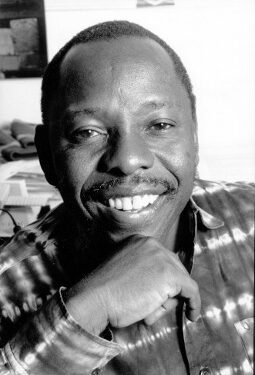




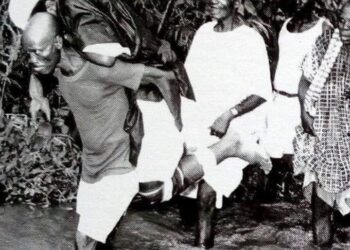
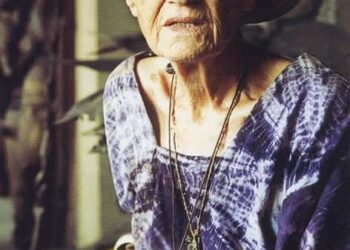

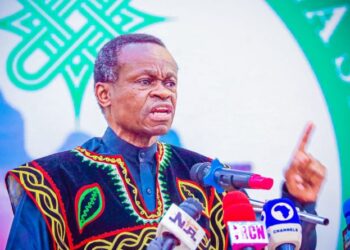

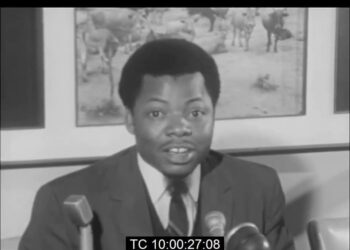










 EduTimes Africa, a product of Education Times Africa, is a magazine publication that aims to lend its support to close the yawning gap in Africa's educational development.
EduTimes Africa, a product of Education Times Africa, is a magazine publication that aims to lend its support to close the yawning gap in Africa's educational development.